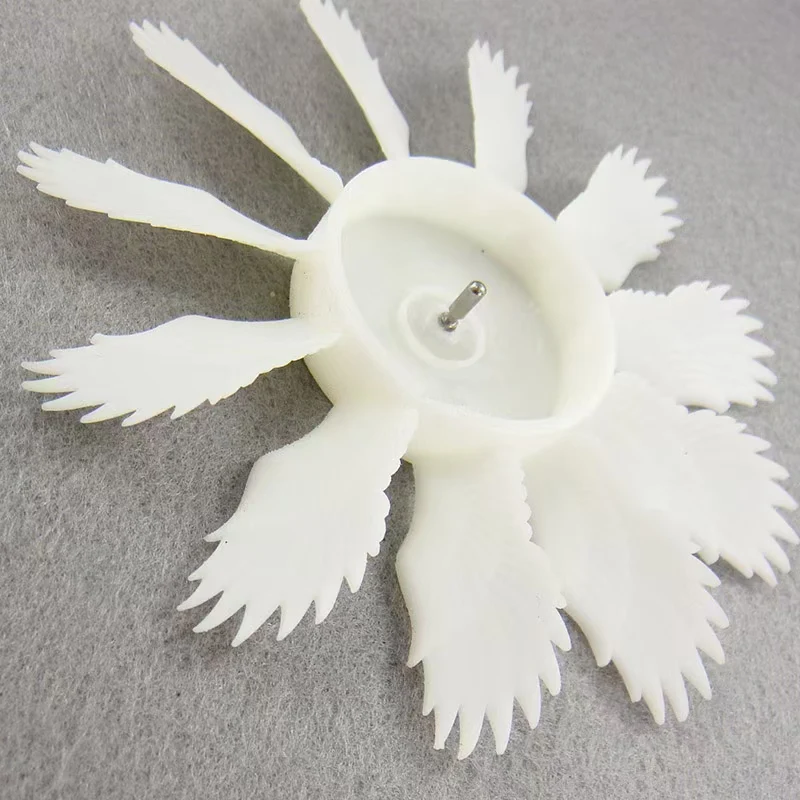- English
- Español
- Português
- русский
- Français
- 日本語
- Deutsch
- tiếng Việt
- Italiano
- Nederlands
- ภาษาไทย
- Polski
- 한국어
- Svenska
- magyar
- Malay
- বাংলা ভাষার
- Dansk
- Suomi
- हिन्दी
- Pilipino
- Türkçe
- Gaeilge
- العربية
- Indonesia
- Norsk
- تمل
- český
- ελληνικά
- український
- Javanese
- فارسی
- தமிழ்
- తెలుగు
- नेपाली
- Burmese
- български
- ລາວ
- Latine
- Қазақша
- Euskal
- Azərbaycan
- Slovenský jazyk
- Македонски
- Lietuvos
- Eesti Keel
- Română
- Slovenski
- मराठी
- Srpski језик
Why Are Rapid Prototypes Essential for Modern Product Development?
In today's accelerated manufacturing world, Rapid Prototypes play a critical role in shortening development cycles, lowering project risks, and improving design accuracy. By converting ideas into physical models within days, engineers and manufacturers can identify structural issues early, validate functionality, and accelerate time-to-market. At Moldburger Mold Industry Co., Ltd., we provide precision-engineered rapid prototyping services using advanced CNC machining, 3D printing, silicone molding, and low-volume production technologies.
What Functions Do Rapid Prototypes Serve?
Rapid Prototypes support multiple stages of product development:
-
Concept Verification – Allow designers to visualize shapes and proportions instantly.
-
Engineering Testing – Provide functional models for strength, fit, airflow, or mechanical assessments.
-
Market Evaluation – Help verify user acceptance before investing in mass production.
-
Assembly Simulation – Ensure compatibility among multiple components.
-
Cost Control – Prevent expensive tooling modifications by addressing issues early.
How Do Rapid Prototypes Improve Performance and User Experience?
-
Higher Accuracy: Achieve dimensional tolerance as tight as ±0.02 mm.
-
Better Design Flexibility: Easily adjust models based on real-time feedback.
-
Improved Product Reliability: Engineers can conduct heat resistance, load, vibration, and structural tests.
-
Enhanced Aesthetics: Surface finishing options include polishing, painting, anodizing, electroplating, and texture simulation.
-
Fast Delivery: Ideal for urgent R&D projects with strict launch schedules.
These advantages explain why Rapid Prototypes are widely used in automotive, consumer electronics, aerospace, robotics, and medical equipment.
Why Do Rapid Prototypes Matter in Manufacturing?
Rapid prototyping reduces development uncertainty and enhances engineering precision. Companies can validate new ideas before committing to expensive steel molds. This not only speeds up innovation but also significantly reduces overall project costs. For manufacturers like Moldburger Mold Industry Co., Ltd., rapid prototyping ensures that the final mold and product meet strict quality expectations from the very beginning.
What Are the Key Technical Specifications of Our Rapid Prototypes?
To demonstrate technical capability professionally, here is a concise specifications table:
Rapid Prototype Capabilities
| Category | Specification |
|---|---|
| Available Processes | CNC Machining, SLA/SLS 3D Printing, Silicone Vacuum Casting, Aluminum Prototyping |
| Tolerance | Up to ±0.02 mm depending on material and geometry |
| Material Options | ABS, PC, POM, PMMA, PA, Aluminum 6061/7075, Stainless Steel, Silicone, TPU |
| Max Build Size | CNC: 1800 × 900 × 600 mm; 3D Print: 800 × 600 × 400 mm |
| Surface Finish | Polishing, Painting, Sandblasting, Anodizing, Electroplating |
| Lead Time | 1–7 days depending on complexity |
Additional Features
-
Small batch production available (10–200 units).
-
Support for complex geometries such as undercuts and thin-wall structures.
-
Simulation analysis available for stress, durability, and feasibility testing.
-
Strict quality control with CMM and laser scanning inspection.
How Do We Ensure Quality and Efficiency During Rapid Prototype Production?
-
Advanced Equipment: High-speed CNC centers, industrial-grade 3D printers, high-precision vacuum casting lines.
-
Strict Process Control: Dimensional reports, tolerance verification, and structural analysis.
-
Professional Engineering Team: Experts in mold design, product development, and materials selection.
-
Continuous Communication: Keep customers informed from design validation to final delivery.
FAQ About Rapid Prototypes
Q1: What industries can benefit most from Rapid Prototypes?
A1: Industries such as automotive, medical, aerospace, smart home devices, and consumer electronics use Rapid Prototypes to validate designs, run functional tests, and accelerate product launches.
Q2: How fast can Rapid Prototypes be delivered?
A2: Most simple prototypes can be produced within 1–3 days. Complex multi-component assemblies or metal prototypes typically take 5–7 days. Moldburger Mold Industry Co., Ltd. offers urgent delivery options.
Q3: What materials are best suited for Rapid Prototypes?
A3: Plastics like ABS, PC, PMMA, and PA are ideal for concept and functional models; metals such as aluminum and stainless steel are suitable for structural and mechanical testing.
Q4: Why should companies choose Rapid Prototypes before building mass-production molds?
A4: Because prototypes help identify design issues early, reduce mold revision costs, and ensure the final product meets performance expectations. Using Rapid Prototypes significantly lowers project risks.
Contact Us
If you need high-precision Rapid Prototypes for product development, engineering verification, or small-batch production, feel free to reach out to Moldburger Mold Industry Co., Ltd. Our team provides professional support, fast delivery, and reliable quality.






